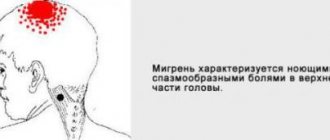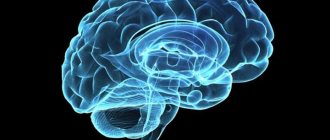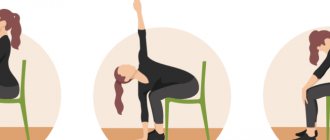"Covid fog"
“I suffered from coronavirus in a mild form, the temperature did not rise above 37.8 degrees,” says 35-year-old Natalya.
— At the beginning of the disease, the sensations were similar to the symptoms of a regular ARVI. But then something began to happen to your head: you seem to live in a fog. You don’t want to think about anything, do anything. It took me more than two months to get out of this state.” 44-year-old economist Alexey, who also recovered from coronavirus relatively easily, also complains of apathy: “I plunged into cat life for two weeks. You wake up, eat a little, then fall into a stupor and fall asleep without noticing. And so around the clock. You can’t remember anything in your head, you don’t remember any important things. Then it gradually began to pass, but I didn’t have the strength to engage in any intellectual activity for a long time.”
But 49-year-old Svetlana, who was hospitalized due to bilateral pneumonia, had to face other consequences. For three months after discharge, she suffered from insomnia and anxiety, and in the short intervals when she managed to fall asleep, she suffered from nightmares. As a result, the woman had to turn to a psychiatrist for help.
Photo © Pixabay
Experts drew attention to such consequences after the first wave of the pandemic. Today, according to researchers, more than a third of those who have recovered from coronavirus experience negative mental consequences to one degree or another. The range of disorders is very wide: from apathy to prolonged depression, panic attacks and memory problems. Doctors also discovered dependence: the more severe the illness, the more serious the psychological consequences.
“In general, it is very difficult to talk about any clear impact of coronavirus on the human psyche,” says Nikolai Starostin, a psychiatrist at a private St. Petersburg clinic. - For two reasons. Firstly, we still do not know exactly how the mechanism of the virus’s influence on the human mental apparatus works. There are already quite a lot of different studies, but they are still at the stage of discussion in the scientific community. We understand that this is clearly influenced by vascular damage: after all, they are the main target of the virus. But this knowledge is not yet enough to draw clear conclusions.”
Psychiatrists point out that the mental health problem associated with COVID-19 is much broader than just the effect of the virus on the human body. We can say that its effect on the human psyche begins much earlier than it enters the body.
Spinning, spinning, wants to fall
Once you experience dizziness, it cannot be confused with anything else.
It seems that the ground is disappearing from under your feet, surrounding objects are either approaching or moving away, coordination of movements is disturbed, sometimes there is not enough air, thoughts are confused, and fainting can become an apotheosis. The reasons can be both relatively harmless and very serious, some requiring urgent hospitalization.
Unpleasant, but no big deal
Reasons that do not cause serious damage to the body include:
- Lack of air in the room - then ventilation, access to fresh air or at least open space is enough;
- Motion sickness in transport is a feature of the body that can be corrected with special medications;
- Side effects after taking certain medications. Easily calculated if you have recently started taking medications.
Women often experience side effects after switching to new hormonal medications. Most often - contraceptives. And not only in tablet form. You may experience dizziness if you decide to protect yourself with a vaginal ring containing doses of estrogen, a coil, a patch, or an injection. It happens that doctors prescribe hormonal drugs not to protect against unwanted pregnancy, but to treat fibroids, inflammation, cysts and other problems in the female genital area. These medications can also cause dizziness.
It’s rare, but it still happens that the reason is non-hormonal contraceptives: the spiral, the cap. Perhaps this is how their individual intolerance manifests itself.
The solution in this case is to stop taking and using dangerous drugs and products. Or (if there is no other way out, when the risks of withdrawal exceed the consequences of unpleasant manifestations), at least pay attention to the body’s reactions, try not to be in dangerous places during this period (in hazardous industries, at high altitudes, etc.). You need to monitor your condition even more carefully than usual with the participation of your doctor.
Correction of the effects of dizziness.
When you need to see a doctor urgently!
There are also health problems when dizziness is only a symptom of serious illnesses. If they are not noticed and left to chance, there is a real risk to life.
- Diseases of the inner ear (it is “responsible” for the vestibular apparatus). The most famous is otitis media. But even this in most cases requires taking antibiotics. But there are many such diseases, and only a doctor will determine exactly which one you have. He will prescribe the optimal treatment.
- Viral and (or) infectious diseases. For example, the flu can be accompanied by dizziness, especially if it is carried on your feet. Then the risk of complications increases, then it’s unlikely to get away with just dizziness! You risk developing a chronic disease and ending up in a hospital bed for a long time.
- Tumors – benign and malignant. You should try to identify them as early as possible, observe or remove them! It is impossible to do this on your own, but any delay is deadly. If nothing else particularly bothers you other than dizziness, you need to be wary. Doubts will be dispelled: MRI, CT or ultrasound. A specialist will determine what kind of examination is required. Therefore, urgently see a doctor!
- Diseases of the circulatory system. There are a lot of them, each is serious in its own way, and launching them is fraught with risk to life.
- Problems with the spine. Curvatures, hernias, and protrusions disrupt the functioning of the entire body, interfere with normal blood flow (especially to the head) and cause very severe dizziness. Fortunately, diseases of the spine in most cases do not go unnoticed. In most cases, a person knows that he has problems with his back, he experiences pain, his neck cannot turn... And therefore, another symptom - dizziness - is more likely to be associated with the correct cause. But this does not mean that you need to calm down. This will only narrow your circle of doctors to a therapist, neurologist, massage therapist, chiropractor or osteopath.
The head may feel dizzy from ARVI.
Some ailments are diagnosed immediately. The same flu or other viruses “crash” the body so much that dizziness appears on the large list of symptoms. Others, for example, tumors, may insidiously not manifest themselves in any way other than dizziness, and the person will attribute the dangerous symptom to fatigue or other understandable and harmless factors. Any suspicious reaction of the body therefore needs to be analyzed; if in doubt, it is better to seek advice once again.
Who should I go to if I feel dizzy? Start with your primary care physician. He will refer you for additional examinations to specialized specialists: a neurologist and, for women, a gynecologist.
Representatives of both sexes are susceptible to the above diseases, regardless of age. Doctors, however, claim that it is women who often come to them with symptoms. It so happens that the fair sex pays more attention to health.
But there are also specific “female” causes of dizziness.
Anxious expectations
Already in the first wave of the pandemic in 2021, psychiatrists drew attention to changes in the mental health of the population. Lockdowns, other coronavirus restrictions, remote work, a person constantly being at home - all this has already provoked negative psychological effects. Add to this anxious expectations - fear of becoming seriously ill, fear for loved ones, the possibility of losing a job - and here it is, a set that places a heavy burden on the human psyche.
At the same time, some researchers have started talking about the increase in suicidal and depressive feelings among completely healthy citizens in different countries of the world. Moreover, data began to appear about increasing cases of domestic violence and divorce.
Photo © Pixabay
When a person gets sick, his anxious expectations intensify. The patient begins to monitor his condition, symptoms, temperature, and breathing with fear. No one wants to end up in a hospital under strict quarantine. Even more fears are caused by the possibility of developing severe complications, the use of ventilators and other procedures. Now doctors already know that the most severe psychological consequences occur precisely in patients who have undergone artificial ventilation.
How does the virus work?
But the causes of post-Covid mental disorders are not only fears for one’s life. Here the actual factors of the disease begin to play a role. Lack of oxygen in the body also leads to poor supply to the brain. This effect can lead to a variety of consequences for the nervous system.
According to a study by Italian doctors published in the journal Brain, Behavior and Immunity, 55% of patients who recovered from Covid experienced some kind of mental problems. Scientists who surveyed 402 people associate them with hormonal imbalances, which are provoked by the immune system resisting the virus. Another reason for negative mental consequences is the severe stress that the patient’s body experiences.
A subsequent study of the psyche of patients who had COVID-19 corrected the data of Italian specialists. Thus, a group of researchers from the USA and Great Britain received less pessimistic results. After a large-scale study of the medical histories of more than 230 thousand people, scientists said that only 34% of Covid survivors complained of anxiety and personality disorder within six months.
Identifying the cause is a priority
It has already been emphasized that all of the above sensations are just symptoms that indicate the development of a particular disease.
To accurately determine which disease causes heaviness and fogginess in the head, you should contact an experienced specialist.
Also, for your own education, you should familiarize yourself with the most common reasons why the head becomes heavy, and lead and weakness spread throughout the body.
Stress - stress - neurasthenia
In addition to feeling leaden, some patients experience fatigue, trouble sleeping, and loss of appetite. The person becomes irritable. All this is a sign of neurasthenia - a common phenomenon in our time.
Although the technological progress characteristic of the 21st century has made it possible to facilitate human physical activity, it has contributed to the development of stress on its mental component. Every day, a modern city resident experiences severe stress, both at work and on the way home.
The patient does not immediately detect a nervous breakdown. As a rule, it develops gradually. As stress accumulates, it reduces physical and mental activity. A person begins to experience difficulties in performing seemingly the simplest everyday tasks. He suffers from headaches and dizziness. The head feels like cotton wool, there is fog and cloudiness in the eyes. It becomes difficult to think and do something.
Osteochondrosis of the neck
It would seem that lead in the skull and compression in the temples are a direct indicator of brain disease, but this is a misconception.
It turns out that these and similar symptoms occur with degenerative disease of the discs located between the vertebrae.
Cervical osteochondrosis negatively affects not only the head, but also the upper internal organs. With this disease, the spinal cord receives more damage, and it, in turn, sends painful impulses to other parts of the body with which it is connected by nerve endings (in other words, throughout the body).
In addition to cloudiness and heaviness with osteochondrosis, the patient experiences ringing in the ears, which can either subside or intensify. This phenomenon is facilitated by pinching of the vessels supplying the brain. Disruption of neuron nutrition provokes auditory hallucinations, as well as:
- drowsiness;
- painful sensations in the back of the head and temples;
- visual impairment;
- memory losses.
Due to compression of the vertebrae, causing disruption of circulation in the brain, the patient feels not only heaviness and cloudiness, but also periodic dizziness. This, in turn, may be accompanied by sweating, burning in the face, and pain in the neck.
Allergic reaction
Unfortunately, not everyone is aware of all the pathogens that can cause this phenomenon in the body. An allergy is a malfunction of the immune system when a person interacts with something or someone. And it can happen at any time.
Swelling, swelling, nasal and mucous congestion are not the only symptoms of allergies. Often this reaction in the body begins with the appearance of congestion and fogginess in the brain.
At the moment of an unexpected deterioration in health caused by one or another pathogen, it is necessary to take timely measures in order to prevent anaphylactic shock.
Infectious lesions
The penetration of infection contributes to the deterioration of well-being. Often this process manifests itself through headaches and deterioration of visual function. The infection spreads very quickly in the body, which emphasizes the need for prompt medical intervention.
Injuries as a risk factor
Athletes and people whose work activities involve constant health risks are most susceptible to this phenomenon. Bruise, concussion and fracture - all this causes unpleasant sensations. Moreover, a varying period of time may pass before these signs appear from the moment of injury.
You don't have to be in an accident to get injured. One sudden movement is enough for the discs in the vertebra to shift. This can happen both during training and in public transport (during sudden braking). A person will not immediately feel a deterioration in health. Only a gradually heavier crown and growing fog in the eyes will indicate a deterioration in blood flow.
Oxygen starvation
The reasons for this phenomenon can be many factors:
- alcohol consumption;
- smoking;
- past injury;
- increase/decrease in pressure;
- displacement of discs in the spine;
- and much more.
The bottom line is this: due to the compression of the channels that supply the brain with oxygen, a gradual deterioration in well-being occurs. Fog appears in the eyes, the body is overcome by weakness, and the head becomes like a stone. A person feels better only in a supine position. Possible loss of consciousness.
Even an ordinary runny nose can contribute to this condition. Due to the blockage of the airways, the brain does not receive the proper dose of oxygen.
Degenerative changes in the spine
Older people are susceptible to this process. Due to multiple changes, both in bone tissue and in the vascular system, the channels through which the brain is nourished are blocked.
Covid as trauma
Specialists from the National Medical Research Center named after. V. M. Bekhterev believes that after COVID-19, patients experience symptoms characteristic of the so-called post-traumatic stress disorder (PTSD).
PTSD is a mental disorder that occurs after events that have a traumatic effect on the individual’s psyche. At the same time, the traumatic nature of the events that occurred is associated with a person’s feeling of helplessness, the inability to influence what is happening, and to resist danger. Characteristic symptoms of PTSD include flashbacks, nightmares, partial amnesia, emotional instability and panic attacks. These manifestations can occur not only immediately after a traumatic event, but also months and even years later.
PTSD is well known to psychiatrists - this disorder can occur after any event that traumatizes the individual’s psyche. And Covid may well be one of them.
Photo © Pixabay
"Side effect"
Another factor is the side effects of medications used to treat COVID-19. For example, glucocorticosteroids (GCS) are widely used in modern anti-Covid therapy. They are often prescribed in high doses and for a fairly long period. But at the same time, GCS can cause hallucinations, delusional states, depression and even manic-depressive states and paranoia. Taking other medications used in the treatment of Covid, for example, some antiviral drugs, also has a negative impact on the psyche.
Post-Covid syndrome?
The entire diverse set of consequences in people who have survived a new coronavirus infection has already been called “post-COVID-19 syndrome.” Among its symptoms are mental disorders that are already well known to us: “fog in the head,” disorientation in space, panic attacks and cognitive disorders. However, some researchers say that mental problems in Covid survivors are not unique consequences of the new disease, but complications that cause any severe infectious disease.
So, back in 2021, an article appeared in the authoritative medical journal The Lancet, which analyzed 72 studies of the consequences of epidemics - the predecessors of COVID-19 - SARS-1 and MERS viruses. Mental disorders in those who recovered from these infections turned out to be identical: confusion, depressed mood, anxiety, memory impairment, insomnia and even delirium. Thus, we can draw a preliminary conclusion: the COVID-19 virus does not necessarily have any unique properties that affect the psyche.
Photo © Pixabay
Neurasthenia and how to deal with it
Many people complain of “fog in the head”, “head like cotton wool”, “fuzzy head” and similar symptoms.
And if overwork, sleep disturbance, and constant irritability are added to this, then most likely you have neurasthenia.
This disease is one of the most common “diseases of civilization.” Neurasthenia occurs gradually, with a combination of emotional and physical stress, constant fatigue. Most often, patients complain of loss of strength, general weakness, increased irritability, “fuzzy head,” and inability to cope with normal amounts of work.
At this stage, in order to make a correct diagnosis, a psychiatrist needs to exclude all diseases that exhibit similar symptoms, because the more accurate the diagnosis, the more successful the treatment will be. What diseases can be manifested by “foggy head”, poor sleep, weakness and irritability, except neurasthenia? First of all, these are asthenic conditions with the onset of serious illnesses. The second is masked depression, which at first can easily be confused with neurasthenia. And chronic fatigue syndrome can manifest itself in a similar way.
Professional psychological diagnostics
Take psychological tests and get an opinion from a highly qualified specialist about your psychological state and mental health
And all these diseases must be treated differently. Therefore, you should definitely consult a psychotherapist. A good psychotherapist selects therapy that matches the specific manifestations of the disease and the individual characteristics of each patient.
If a person continues to be exposed to stress and does not seek medical help, his condition worsens - the usual set of complaints about a “cotton” head is joined by tearfulness, complaints about the heart, and fog in the head. Irritability increases to an extreme degree, but irritation quickly gives way to weakness. Sleep is usually unstable, does not bring a feeling of rest, and after sleep the head feels like cotton wool. Appetite worsens, constipation or diarrhea may bother you. Sexual desire decreases in both men and women. The condition worsens before a change in weather (so-called “meteosensitivity”). In the absence of treatment at this stage, apathy, lethargy, severe weakness and persistent depression of mood are further added. Interest in life decreases, the patient thinks only about his painful condition, about his “fuzzy” head.
Treatment of neurasthenia depends on the severity of painful symptoms, but is primarily aimed at eliminating psychotraumatic factors. It is necessary to reduce both mental and physical stress. This is the most important condition for treatment; without such measures it will not be possible to defeat the disease. In the early stages of the disease, normalizing the rhythm of life, eliminating stress and psychotherapy may be enough to significantly improve health. And, of course, at this stage, psychotherapy methods that do not use drugs - cognitive-behavioral, psychoanalysis - have a very good effect, and group psychotherapy methods are very effective.
In any case, you need to see a psychotherapist. Self-medication usually worsens the condition and leads to progression of the disease.
In more advanced cases, additional psychopharmacotherapy may be required. General strengthening drugs, tranquilizers, and, if necessary, sleeping pills and antidepressants are used. Psychotherapy is also actively used in the treatment of advanced neurasthenia.
The first indicator of improvement is the normalization of sleep and the disappearance of the feeling of “fog” in the head. With timely treatment, the problem can usually be completely overcome, however, if the tense environment and stress at work and in personal life continue to persist, it is possible









